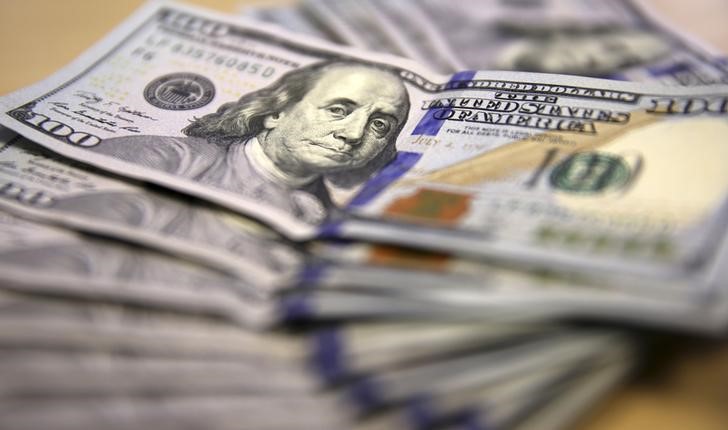By Hideyuki Sano
TOKYO, July 31 (Reuters) - The dollar held near one-week highs against a basket of major currencies on Friday as investors interpreted latest U.S. GDP readings as keeping the Federal Reserve on track for its first interest rate hike since 2006.
The dollar index rose to as high as 97.773 .DXY =USD on Thursday, having risen 1.5 percent from its low on Monday and last stood at 97.455.
U.S. gross domestic product growth in the second quarter was 2.3 percent, lower than the consensus 2.6 percent forecast.
But growth did accelerate from the first quarter, which was also revised up to 0.6 percent from an initial reading of a 0.2 percent contraction.
The report also showed a pick-up in inflation and strong consumption during the second quarter.
"The U.S. GDP was mixed but on the whole it underpins the case for a rate hike. The market will continue to search for more hints on whether it will come in September or later," said Shin Kadota, chief FX strategist at Barclays (LONDON:BARC) in Tokyo.
The data followed the Federal Reserve's cautious but upbeat assessment on the economy on Wednesday, which some traders saw as bullish for the greenback.
U.S. interest rate futures priced in a higher chance of a September rate hike, with the price of Federal Fund rate futures contracts for September to December all hitting the lowest level in a month and a half.
As the dollar held firm, the euro slipped to as low as $1.08935 on Thursday, its lowest level in more than a week. It was at $1.0945 EUR= in early Asian trade, up slightly from late U.S. levels.
The euro also faced further selling pressure on a Financial Times report that said the International Monetary Fund could not officially join bailout talks with Greece until the debt-burdened nation agrees to comprehensive reforms.
Against the yen, the dollar rose to a seven-week high of 124.58 yen on Thursday before stepping back to 123.97 yen in early Asian trade.
Traders were cautious about pushing the Japanese currency to 125 yen, as Bank of Japan Governor Haruhiko Kuroda had said in June that he saw no reason for further currency weakness when the yen was around that level.
The yen showed limited response to mixed Japanese inflation data, which showed nationwide core CPI rose 0.1 percent in June, more than economists' forecast of a flat reading.
But July core CPI in the Tokyo area, announced one month ahead of nationwide figures, showed core CPI declined 0.1 percent. (Editing by Eric Meijer & Shri Navaratnam)
